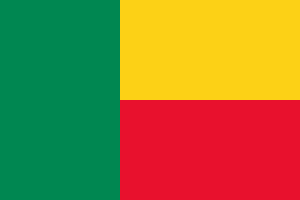Language/Fon/Grammar/Plurals
Hi Fon learners! 😊
In this lesson, we will learn about plurals in Fon. Understanding how to form plurals is an essential part of learning the Fon language. By the end of this lesson, you will be able to form plurals correctly in Fon.
Introduction[edit | edit source]
In the Fon language, a noun can be singular or plural. The singular form describes one object, and the plural form describes more than one object. For example, one Fon word for "table" is "dé". If you want to talk about two tables, you need to use the plural form, which is "de-dé".
In this lesson, we will learn how to form plurals and some interesting facts about plural nouns in Fon.
Take a moment to explore these relevant pages as you conclude this lesson: How to Use "Be", Pronouns & Adjectives.
Forming Plurals in Fon[edit | edit source]
To form plurals in Fon, we add a suffix to the end of the noun. The suffixes used for plurals are "-n" and "-yi".
The suffix "-n" is added to a noun ending in a consonant. For example:
| Fon | Pronunciation | English | |||
|---|---|---|---|---|---|
| blò | [blɔ́] | tree | blò-n | [blɔ́ʔɔ́n] | trees |
| mami | [màmì] | mother | mami-n | [màmìʔìn] | mothers |
The suffix "-yi" is added to a noun ending in a vowel. For example:
| Fon | Pronunciation | English | |||
|---|---|---|---|---|---|
| yé | [jé] | house | yé-yi | [jéjí] | houses |
| sùù | [sùù] | market | sùù-yi | [sùùjí] | markets |
Some nouns have irregular plural forms. Here are a few examples:
| Fon | Pronunciation | English | |||
|---|---|---|---|---|---|
| ayi | [àjì] | egg | ahwé-yi | [àxwéjí] | eggs |
| hulu | [húlú] | ball | hulu-zù | [húlúzù] | balls |
Fon also has a collective plural form. The collective plural is used when referring to a group of objects as a single entity. For example:
| Fon | Pronunciation | English | |||
|---|---|---|---|---|---|
| djó | [djó] | chicken | djó-sé | [djósé] | flock of chickens |
Interesting Facts[edit | edit source]
In Fon, there are some plural markers that are added to the beginning of the noun instead of the end. These markers are used for some body parts and animals. Here are a few examples:
| Fon | Pronunciation | English | |||
|---|---|---|---|---|---|
| éó | [éó] | eye | méó | [méó] | eyes |
| élyi | [élyí] | mouth | mèlyi | [mèlyí] | mouths |
| sùù | [sùù] | market | zsùù | [zsùù] | markets |
Another interesting fact is that some foods have plural forms because they are usually sold in bunches or groups. For example:
| Fon | Pronunciation | English | |||
|---|---|---|---|---|---|
| òkwá-jì | [òkwádì] | banana | òkwá-wé | [òkwáwé] | bunch of bananas |
| lóòsì | [lóòsì] | plantain | lóòsí-zù | [lóòsízù] | bunch of plantains |
By learning about these cultural aspects of the Fon language, you can further your understanding and appreciation of the language and the people who speak it.
Dialogue[edit | edit source]
To see plurals in context, here's a dialogue between two friends:
- Person 1: Mi cù? (What's up?)
- Person 2: Mi dé-dé lo (I'm looking at the tables)
- Person 1: Ha. Duhún? (Really? Where?)
- Person 2: Lo médu (In the market)
- Person 1: Ah, kédó sùù-yi-sé nú. (Ah, there are many markets there.)
- Person 2: Yes. Kédó sùù-sé yóo novu (Yes. There's a new market).
Practice Exercise[edit | edit source]
To practice what we've learned, try forming the correct plural form for the following words:
1. zé - [solution: zé-yi] 2. koló - [solution: koló-n] 3. djó - [solution: djó-sé] 4. mèlyi - [solution: mélyi]
Sources[edit | edit source]
Don't stop here! Keep practicing your Fon Grammar and expand your vocabulary by talking to native speakers on Polyglot Club. Find native speakers and ask them any questions!
➡ If you have any questions, please ask them in the comments section below.
➡ Feel free to edit this wiki page if you think it can be improved. 😎

